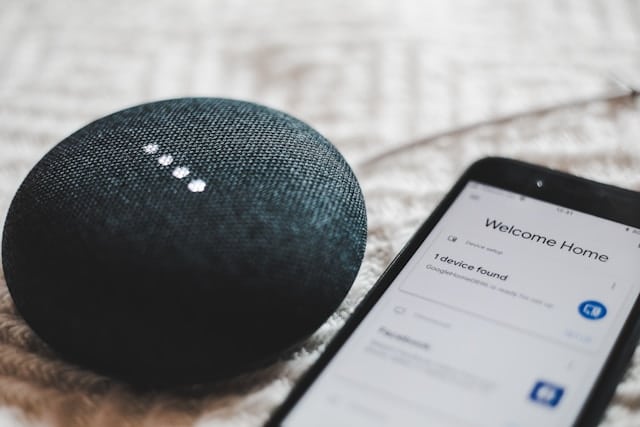How Do Interactive Voice Response (IVR) Systems Enhance Patient Follow-Up Care?

When you think about healthcare, what comes to mind? Perhaps it is the long waits in crowded hospitals or the quick, hurried visits with the doctor. But what about the follow-up care? The management of a patient’s health following initial treatment is often overlooked, yet it is every bit as crucial as the initial care. One tool that is revolutionizing patient follow-up care is the Interactive Voice Response (IVR) system. This technology is at the forefront of enhancing patient care by automating calls and providing an effective channel for patient-physician interaction.
Understanding Interactive Voice Response (IVR) Systems
Before delving into how IVR systems enhance patient care, it’s important to understand what they are. An IVR system is a telephony menu system that allows identification, segmentation, and routing of callers to the most suitable agent within your team. It is an efficient system that uses pre-recorded voice prompts and menus to present information and options to callers, and touch-tone telephone keypad entry to gather responses.
A lire également : What Impact Does Deep Sea Diving Have on Blood Pressure and Cardiovascular Health?
For instance, if a patient calls their healthcare provider, they might hear an automated voice that directs them to press a certain number if they are calling to schedule an appointment, refill a prescription, or speak with a nurse. This system allows the caller to navigate the phone system, be directed to the correct department, or even manage a series of standard tasks during the call. IVR systems are not only beneficial to the healthcare staff but also significantly enhance the patient experience.
Key Advantages of IVR Systems in Patient Care
When it comes to healthcare, efficiency and data management are paramount. IVR systems bring about key advantages that streamline the operation of medical services and elevate the level of patient care. Here are some of the benefits of implementing an IVR system in healthcare:
A découvrir également : What Are the Health Benefits of Nordic Walking for Knee Osteoarthritis?
Streamlining Patient Calls
Healthcare providers receive numerous calls daily from patients seeking to schedule appointments, request medication refills, or ask questions about their health conditions. An IVR system ensures that every call is attended to. It allows patients to perform simple tasks like appointment scheduling or prescription refills without needing to speak with a staff member, thereby freeing up staff for more complex tasks.
Enhancing Patient Data Management
IVR systems also play a critical role in improving patient data management. They can securely store patients’ personal data and medical history, which can be easily accessed when needed. This is especially beneficial for follow-up care, as the readily available data allows physicians to provide a more personalized approach to each patient.
Improving Customer Services
Automated services like IVR systems can drastically improve the customer experience. Patients do not have to wait on hold for extended periods, and their calls are directed to the correct department, saving time and reducing frustrations.
The Role of IVR Systems in Follow-Up Care
Follow-up care involves monitoring a patient’s health condition after initial treatment. It may include regular check-ups, medication management, and addressing any health complications that may arise. IVR systems have proven to be an invaluable tool in follow-up care for several reasons:
Facilitating Regular Check-Ins
With IVR systems, healthcare providers can regularly check in with their patients, asking them for updates on their health status. This can be especially beneficial for patients with chronic conditions that require consistent monitoring.
Managing Medication Reminders
Managing medication can be challenging, especially for elderly patients or those with multiple prescriptions. IVR systems can be programmed to send automated calls or messages to remind patients to take their medication, thereby ensuring compliance with treatment plans.
Providing Health Information
IVR systems can also provide patients with vital health information. For instance, if a patient is discharged from the hospital after a surgical procedure, the IVR system can call with instructions for at-home care, signs of complications to look out for, and steps to take if complications arise.
IVR Systems: A Study into Their Efficacy
While the potential benefits of IVR systems in healthcare are substantial, it’s also important to back these claims with empirical evidence. In fact, a study conducted by the Journal of Medical Internet Research demonstrated the effectiveness of IVR systems in patient follow-up care. The study involved patients with chronic diseases and found that those who used IVR systems for follow-up care showed improved health outcomes.
Patients reported that the IVR system was easy to use and appreciated the convenience of receiving automated calls at their chosen times. They found the system to be efficient, with the automated calls saving them time compared to traditional methods of follow-up care. Furthermore, the IVR system allowed for prompt intervention in case of health deteriorations, leading to better management of chronic conditions.
The study demonstrates not only the practicality of IVR systems but also their potential to significantly improve the quality of patient follow-up care. As technology continues to evolve, so too does the potential for advanced, patient-centered care. The use of interactive voice response systems in healthcare is a testament to the power of technology to improve service delivery and patient outcomes.
In the end, the future of healthcare lies in leveraging technology to optimize patient care, and IVR systems are an integral part of that vision. They enable a seamless interaction between patients and healthcare providers, ensuring efficient service delivery, enhancing customer experience, and ultimately, leading to improved health outcomes. As we continue to navigate the digital age, the role of IVR systems in healthcare is only set to become more vital.
Real-World Examples of IVR in Healthcare
To better understand the application of IVR systems in healthcare, let’s explore some real-world examples. In these cases, you’ll see how IVR technology has been successfully used to improve patient care and enhance operational efficiency.
IVR for Appointment Handling
Consider a large hospital network that handles hundreds of patient appointments daily. The traditional approach of manual scheduling can be overwhelming for the staff and lead to logistical errors. By leveraging an IVR system, the hospital can automate appointment scheduling, reducing the burden on the staff and improving efficiency. Patients can simply call, follow the voice prompts to schedule, reschedule, or cancel appointments, leading to improved patient access and satisfaction.
IVR for Chronic Disease Management
In another example, consider a healthcare provider handling patients with chronic diseases requiring regular monitoring. The provider uses an IVR system to facilitate regular check-ins, manage medication reminders, and provide health information. Patients receive automated calls at their preferred times, and their responses are recorded for subsequent analysis. This approach not only ensures consistent monitoring but also allows for timely intervention in case of any health deteriorations.
IVR for Medical Answering Services
In a busy medical practice, handling incoming phone calls can be a daunting task. Implementing an IVR system can streamline this process. The system can handle common inquiries, direct calls to the appropriate department, and even provide after-hours answering services. This way, the staff can focus on more critical tasks, and patients have their needs met promptly, thereby improving customer service.
By examining these real-world examples, it becomes clear that IVR systems have a multi-faceted role in enhancing patient care and operational efficiency in healthcare.
Conclusion: The Future of IVR Systems in Healthcare
In conclusion, IVR systems hold an immense potential to revolutionize patient follow-up care and overall healthcare delivery. From streamlining patient calls and improving data management to facilitating regular check-ins and providing health information, these systems are redefining patient-physician interaction.
The convenience of these systems is backed by empirical evidence, with studies like that published in the Journal of Medical Internet Research underscoring their effectiveness. Patients appreciate the ease and efficiency of automated calls, and healthcare providers benefit from the timely data collection and intervention capabilities offered by these systems.
The real-world examples of IVR systems in action further highlight their practicality and versatility. Whether it’s handling appointments, managing chronic diseases, or providing medical answering services, IVR technology can effectively meet the unique challenges faced by different healthcare providers.
As we move further into the digital age, the role of IVR systems in healthcare is only set to increase. With the continuous advancements in IVR technology and its growing acceptance among patients and healthcare providers, the future indeed looks promising. The challenge for healthcare providers is to fully leverage this technology to optimize patient care and enhance their service delivery, thereby realizing the full potential of IVR systems.
The journey to improve healthcare delivery is ongoing, and IVR systems will continue to play a pivotal role in this journey. They represent an exciting intersection of technology and healthcare, promising to deliver enhanced patient satisfaction and improved health outcomes. As we embrace this new era, let’s look forward to a future where patient care is not just efficient and personalized but also interactive and engaging.
